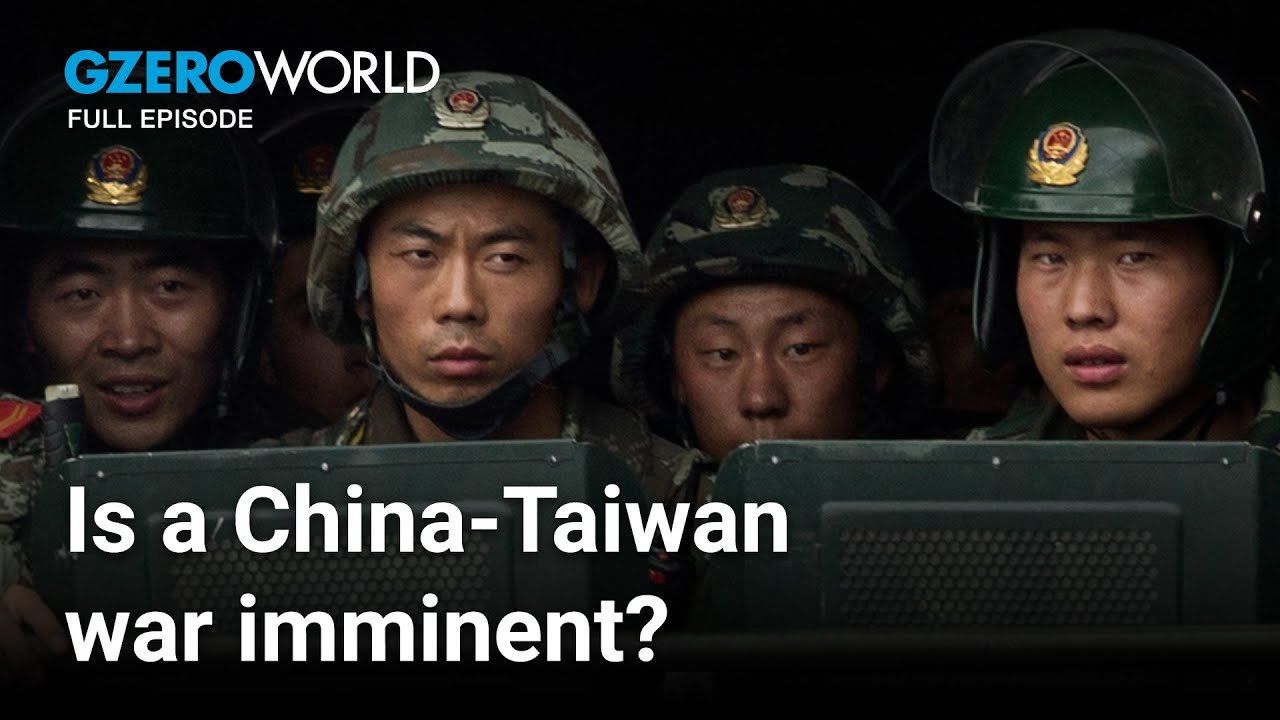June 09, 2025
On GZERO World, Ian Bremmer asks the question keeping diplomats, military experts, and policymakers all over the world up at night: Could China and Taiwan be heading toward war? Tensions are high. The People’s Liberation Army has been staging louder and more frequent military drills around Taiwan and Chinese President Xi Jinping has ordered the PLA to be ready to seize the island by 2027. Diplomatic red lines are being tested, and the risk of miscalculation is growing. Bonny Lin, director of the China Power Project at the Center for Strategic and International Studies, joins Ian to break down the current conflict and whether war between China and Taiwan in the near-term is a realistic possibility.
Securing Taiwan is crucial for global stability—the island manufactures over 90% of the world’s most advanced semiconductors, and nearly half of all container ships pass through the Taiwan Strait. A Chinese invasion of Taiwan would upend the global economy, reshape alliances, and likely trigger the most deadly conflict in the Asia-Pacific since World War II. What are China’s goals and how far is Beijing willing to go to achieve them? And, crucially, if China attacked Taiwan, would the Trump administration step in to help defend it?
"The rate and pace of Chinese activities around Taiwan has been increasing quite a bit," Lin warns, "So lots and lots of developments that are showcasing that China's very dead serious about using military force if they need to."
GZERO World with Ian Bremmer, the award-winning weekly global affairs series, airs nationwide on US public television stations (check local listings).
New digital episodes of GZERO World are released every Monday on YouTube. Don't miss an episode: subscribe to GZERO's YouTube channel and turn on notifications (🔔).GZERO World with Ian Bremmer airs on US public television weekly - check local listings.
More For You
Bad Bunny during the Super Bowl LX halftime show press conference at Moscone Center.
Kirby Lee-Imagn Images
100 million: The number of people expected to watch the Super Bowl halftime performance with Bad Bunny, the Puerto Rican superstar and newly minted Album of the Year winner at the Grammys.
Most Popular
Think you know what's going on around the world? Here's your chance to prove it.
- YouTube
An imminent US airstrike on iran is not only possible, it's probable.
Americans are moving less — and renting more. Cooling migration and rising vacancy rates, especially across the Sunbelt, have flattened rent growth and given renters new leverage. For many lower-income households, that relief is beginning to show up in discretionary spending. Explore what's changing in US housing by subscribing to Bank of America Institute.
© 2025 GZERO Media. All Rights Reserved | A Eurasia Group media company.
